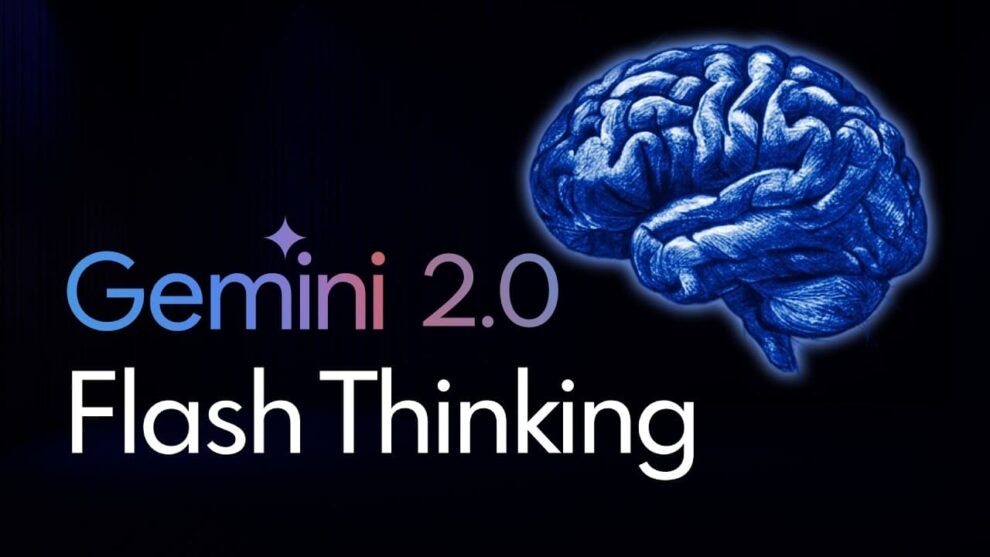Google has escalated the artificial intelligence arms race with the release of Gemini 2.0 Flash Thinking Experimental, a sophisticated AI model designed to compete with OpenAI’s reasoning capabilities. The announcement, made Thursday, marks Google’s latest strategic move in what has become an increasingly competitive month of AI releases between tech giants.
The new experimental model builds upon Google’s recently unveiled Gemini 2.0 Flash platform, incorporating advanced runtime reasoning techniques that mirror those found in OpenAI’s o1 system. These mechanisms are designed to enable deeper analytical capabilities when processing complex problems, representing a significant evolution in AI technology.
Jeff Dean, Google DeepMind’s chief scientist, highlighted the model’s enhanced computing capabilities on social media platform X, noting “promising results” achieved through increased inference time computation. The system’s distinctive feature lies in its deliberative approach, taking additional time to process multiple related prompts before arriving at what it determines to be the most accurate response.
However, early testing has revealed some concerning accuracy issues. TechCrunch reporter Kyle Wiggers discovered the model struggling with basic tasks, including a notable error in counting the number of occurrences of the letter ‘R’ in the word “strawberry.” These findings raise questions about the practical reliability of such sophisticated systems for everyday applications.
The emergence of reasoning models represents a significant shift in AI development strategy. As traditional training methods begin to show diminishing returns, companies have increasingly turned to these more complex systems that incorporate self-checking feedback loops. This approach, reminiscent of early 2023’s hobbyist projects like “Baby AGI,” typically requires extended processing times, often adding seconds or minutes to response generation.
The competitive landscape has grown increasingly crowded since OpenAI’s September launch of o1-preview and o1-mini. Various companies have rushed to achieve feature parity, with DeepSeek introducing DeepSeek-R1 in early November and Alibaba’s Qwen team releasing their QwQ model this month. This rapid succession of releases underscores the industry’s intense focus on reasoning capabilities.
Despite the enthusiasm surrounding these advanced models, significant challenges remain. The substantial computing resources required to operate reasoning models have sparked discussions about their long-term commercial viability. This resource intensity is reflected in premium service pricing, exemplified by OpenAI’s ChatGPT Pro subscription at $200 monthly. Additionally, while these models demonstrate impressive performance on certain benchmarks, questions persist about their practical utility and consistent accuracy across various applications.
Nevertheless, Google appears committed to advancing this technology. Logan Kilpatrick, a Google AI Studio employee, characterized the release as “the first step in our reasoning journey” in a social media post, suggesting continued development and refinement of these capabilities.
The introduction of Gemini 2.0 Flash Thinking Experimental reflects broader industry trends toward more sophisticated AI processing methods. As companies explore ways to overcome the limitations of conventional training approaches, reasoning models represent a potential pathway to enhanced AI capabilities, albeit with significant technical and economic considerations.
This development also highlights the ongoing competition between major tech companies in the AI space, with each striving to demonstrate leadership in advancing the technology’s capabilities. As these systems continue to evolve, their practical applications and limitations will likely become clearer, shaping the future direction of AI development and implementation.
The release of this new model underscores Google’s determination to maintain its position at the forefront of AI innovation, even as questions about the practical utility and economic viability of reasoning models remain unresolved. As the technology continues to mature, its impact on both the AI industry and everyday applications will become increasingly apparent.
















Add Comment